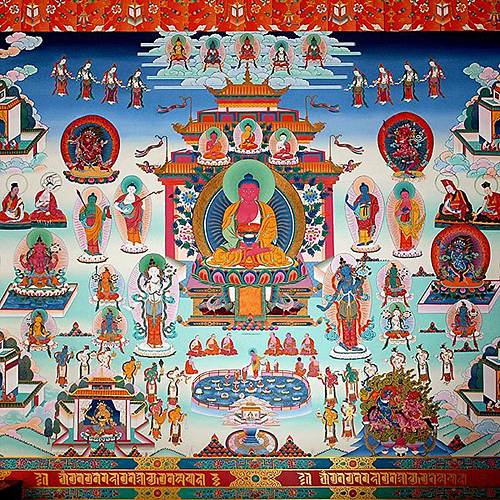
Listening to today’s everyday commentary makes it sound as if the end is near. The climate is changing, the economy is faltering, our resources have been degraded and threatened, population continues to increase among the world’s poorest people, reefs are dying, fish populations are collapsing and we are mired in endless war. Yet, have things ever been any different?
Imagine having lived over the hill from Attila the Hun; now I’ll bet that was no fun. Every time he’d set out with his army he’d pillage the community, steal the food and the women, enslave the men, behave badly and exhibit terrible table manners. If one managed to avoid the worst of it, life would be difficult nonetheless. It was terribly depressing, I’m sure, to walk home after a hard day at work and see your neighbor’s head stuck on a pike.
Or take the influenza pandemic of 1919. Worldwide, 40 million people died, and this when the population of the world was less than 2 billion people, as compared with over 6 billion people today. Nearly every family suffered a death, or knew a family that did. My father was born in 1919 … one of the millions who lucked out.
Need I mention the horrors of Hitler, Stalin or World War II? Talk about gruesome. No doubt many thought that terrible war was a clear indication of the end of the world. As technology has improved, so has the efficient technology of death, and sadly, we continue to kill each other constantly. Populations starve, die of disease and drown due to flood, hurricane and tsunami. All-in-all, if you care to pay attention, it’s not a pretty picture.
This year’s presidential election has ramped up anxiety to record levels. Clouds of racial politics, media manipulation, fears of militarism and allegations of inexperience have all combined with dire predictions of possible worldwide economic depression; it’s certainly difficult to maintain a joyful and positive attitude with all this negativity floating around.
Yet, coping with catastrophe and disaster is the stuff we are made of, and our capacity to endure, carry on and survive is the true tale of humanity. In the fourth century, Avatamsaka (Flower Ornament) Sutra of Mahayana Buddhism, the name given to this world of ours is “Endurance,” and that is something we humans do best. I don’t consider this depressing, though I am fully capable of wistfully imagining an enlightened world called “Shining Light of Wisdom” and what life might be like there. I’ve set aside such daydreaming, however, so that I have time to pay the bills.
Actually, our legendary capacity to endure reassures me and helps reduce my anxiety and panic over the current crummy situation in the world. Of all the many misfortunes that can befall us, the only thing I can think of that would end the world as we know it is global thermo-nuclear war; short of that, humanity will go on in one fashion or another. We will no doubt suffer, and at other moments we will enjoy life, but to suppose that after at least 100,000 years of endurance the human race is about to run out of steam plainly just seems foolish.
So, don’t worry all the time; we’re gonna be all right.